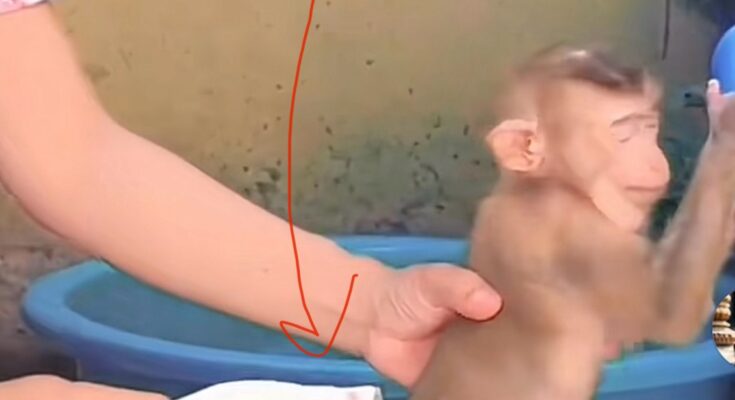Diarrhea in baby monkeys is not just a minor inconvenience—it can quickly become a life-threatening condition. Just like in human infants, baby monkeys are highly vulnerable to dehydration when they experience severe diarrhea. This condition can strip their small bodies of vital fluids and electrolytes in a short period of time, leading to serious health complications or even death if not treated promptly.
Why Diarrhea Is So Dangerous for Baby Monkeys
A baby monkey’s body is made up of a high percentage of water, and it has relatively low reserves of fluids and nutrients. Diarrhea causes the body to lose water and electrolytes at an accelerated rate, disrupting the delicate balance needed for healthy functioning. In severe cases, this fluid loss can impair organ function, weaken the immune system, and result in hypovolemic shock—a condition where the body is unable to maintain adequate blood flow.
Unlike adult monkeys, baby monkeys haven’t yet developed strong immune systems or the resilience to cope with such rapid fluid loss. Their smaller size also means that even a moderate episode of diarrhea can result in dehydration within hours, not days.
Common Causes of Diarrhea in Baby Monkeys
There are many potential causes of diarrhea in baby monkeys, including:
- Bacterial infections (e.g., Salmonella, E. coli)
- Viral infections (such as rotavirus)
- Parasites (like Giardia or Cryptosporidium)
- Poor diet or formula intolerance
- Stress due to captivity or separation from the mother
In the wild, baby monkeys rely heavily on their mothers for not only food but also antibodies from breast milk that help protect them from infections. Orphaned or captive-raised monkeys may lack this natural immunity, making them more prone to digestive issues.
Signs of Severe Dehydration
It’s critical for caregivers and wildlife rehabilitators to recognize the early signs of dehydration. Symptoms in baby monkeys may include:
- Lethargy and weakness
- Sunken eyes
- Dry mouth or gums
- Wrinkled skin with poor elasticity
- Cold extremities
- Decreased urine output
In the presence of these signs, immediate intervention is required.
Treatment and Prevention
The most urgent treatment for severe diarrhea in baby monkeys is fluid replacement. Oral rehydration solutions (ORS) containing salts and glucose can help restore the body’s electrolyte balance. In more serious cases, subcutaneous or intravenous fluids may be necessary under veterinary supervision.
Preventive measures are equally important. Ensuring that baby monkeys have a safe, clean environment, a proper diet, and routine veterinary care can significantly reduce the risk of diarrhea. For orphaned or rescued monkeys, using a milk formula designed specifically for primates can prevent digestive upsets linked to improper nutrition.
Conclusion
Diarrhea in baby monkeys is not something to be taken lightly. What might seem like a minor illness can rapidly spiral into a life-threatening emergency due to fluid loss. With early detection, proper hydration, and appropriate care, most cases can be managed successfully. Whether in the wild or in captivity, safeguarding the health of baby monkeys begins with understanding the dangers of dehydration and acting quickly when symptoms appear.



